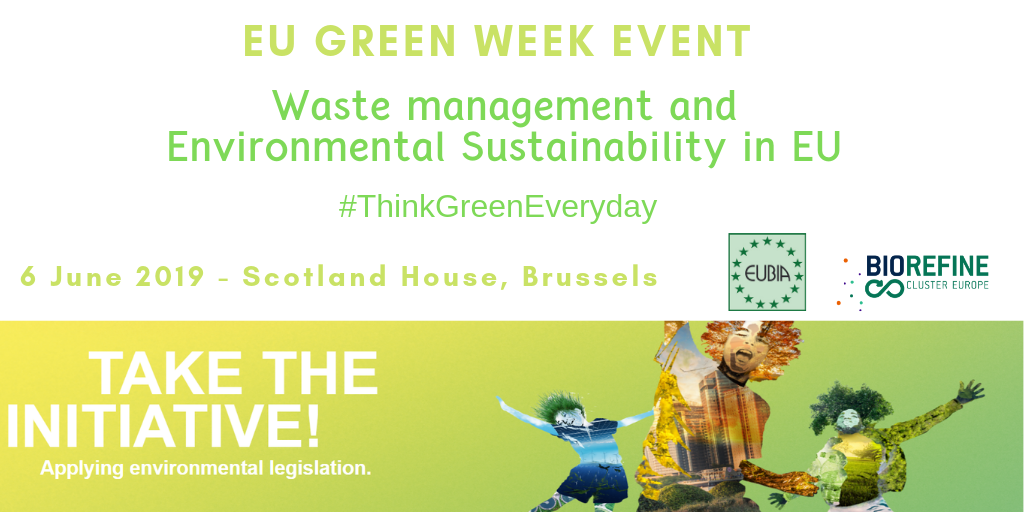
The EU Green Week side event is an opportunity to get information on current legislation related to biowaste and its implementation across EU; assist to case studies on available projects about innovative approach to biowaste management and create an open discussion on challenges faced for a sustainable development. This event is organized by EUBIA and the Biorefine Cluster Europe.
Click here to register!
Each European citizen produces approximately 200 kg of municipal biowaste per year, what makes between 118 and 138 million tonnes of biowaste annually across Europe. Under-developed waste management has become a huge burden for many European countries due to the environmental negative impact of the large volume of waste generated. The materials and resources are being lost what contributes to the under-utilisation of biowaste and its potential recovery into high-value products. The biowaste can be transformed into green energy, organic fertilizer, feed, biopesticides, bioplastics and many others biobased products.
The main biowaste management systems that currently exist in EU are landfilling (40% up to 100% in some Member States), incineration, composting and digestate (25%), which represent one-way flow systems. Biowaste management process from collection to treatment and disposal must be optimized in order to reduce greenhouse gases emissions. Recycling of biowaste makes a considerable contribution to GHG emission mitigation, since there is high organic content in municipal solid waste.
Currently, EU attention is directed towards climate change, energy crisis and a lack of key resources. Biowaste could play a huge role to combat these challenges. The use of biowaste as a resource allows to move closer to the EU’s common objectives by reducing the amount of waste disposed in landfills. There are possibilities to utilize biowaste for energy production as an opportunity to efficiently use renewable energy and to decrease the energy dependence of Member States. Energy recovered from biowaste in the form of biogas or thermal energy can help in the fight against climate change.
In December 2015, the EC published the European Circular Economy Package that paved the way for a resource-efficient society and sustainable recycling industry across Europe. Biowaste prevention- part of the Waste Framework Directive, stimulates Europe’s transition towards a circular economy. The circular economy strategy will boost global competitiveness, foster sustainable growth and generate new jobs across EU. The circular economy strategy goes beyond the waste hierarchy by designing circular resource flows at regional and global level and between industries. Transition to a circular economy will require changes in the whole value chain; in product design identifying new methods turning waste into products, new business and market models and changes in consumer behaviour.




